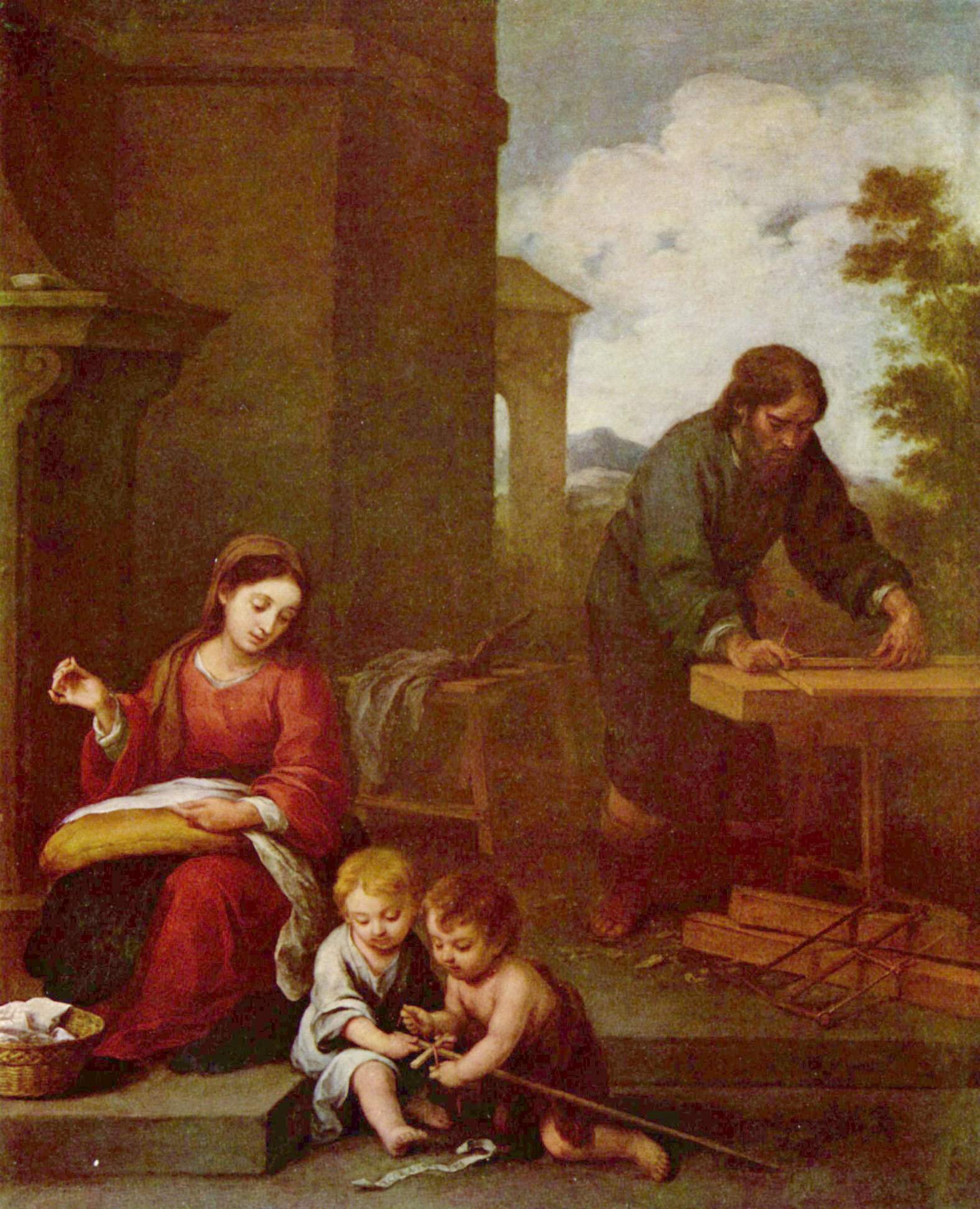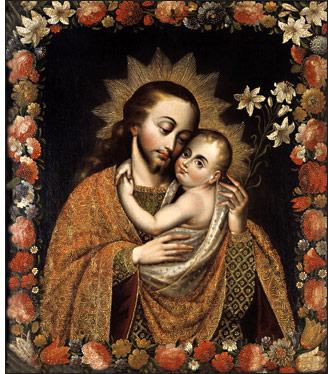Today is the Feast of St. Joseph, my “name Saint.” We often see St. Joseph held up as a model for men, and in particular for fathers. This is as it should be, since God treats St. Joseph as the head of the Holy Family, which is fascinating, given the other two members of that Family:
God chooses to respect Joseph’s headship over his Wife and Child, even though his Wife is sinless and his Child is God. God takes the one member of the Holy Family who, while an amazing model for men everywhere, is still the least qualified of the Three. And of course, these are only the times in which Joseph is receiving dreams. The rest of the time, the many years between the conception of Jesus Christ and the death of St. Joseph, he’s apparently running things without any direct revelation whatsoever, just doing the best he can. And both Mary, and even Jesus Christ Himself, submit to him.
But precisely for this reason, St. Joseph is not just a good model for biological fathers, but spiritual fathers, as well. After all, he’s not Jesus’ biological dad (Lk. 3:23). What’s more, he lives a life of celibacy, married to Mary, the icon of the Church. Considered in that view, that Joseph devotes his entire life in celibate service to Christ and Mary (and by extension, the Church), he’s an exemplar of those attributes that priests are called to.
In a previous post, I responded to an anti-Catholic Protestant who was disgusted with the idea of Mary’s perpetual Virginity, since he considered a sexless marriage to be a cruel punishment by God to “a loveless barrenness.” Yet St. Joseph lives out this model of marriage so well that we now refer to these as Josephite marriages. True, St. Joseph sacrified sexual intercourse, but in exchange, he died in the arms of Jesus and Mary. He sacrified even the God-given pleasures of the flesh in service to God, and was rewarded tremendously.
It is no wonder, then, that Pope Benedict says that “our meditation on the human and spiritual journey of Saint Joseph invites us to ponder his vocation in all its richness, and to see him as a constant model for all those who have devoted their lives to Christ in the priesthood, in the consecrated life or in the different forms of lay engagement.” He explains that this is tied to the remarkable way that St. Joseph is father:
Speaking to the crowd and to his disciples, Jesus declared: “You have only one Father” (Mt 23:9). There is but one fatherhood, that of God the Father, the one Creator of the world, “of all that is seen and unseen”. Yet man, created in the image of God, has been granted a share in this one paternity of God (cf. Eph 3:15). Saint Joseph is a striking case of this, since he is a father, without fatherhood according to the flesh. He is not the biological father of Jesus, whose Father is God alone, and yet he lives his fatherhood fully and completely. To be a father means above all to be at the service of life and growth. Saint Joseph, in this sense, gave proof of great devotion. For the sake of Christ he experienced persecution, exile and the poverty which this entails. He had to settle far from his native town. His only reward was to be with Christ. His readiness to do all these things illustrates the words of Saint Paul: “It is Christ the Lord whom you serve” (Col 3:24).
So today, whether we’re priests, religious, or laity, whether we’re married or single, men or women, let’s take a moment to honor St. Joseph’s inspiring example, and strive to live a more Christ-centric life.



Thank you for this
Buon onomastico!
Happy Feast day 🙂
Beautiful insight into Saint Joseph’s role model for all fathers. Happy Feast Day!